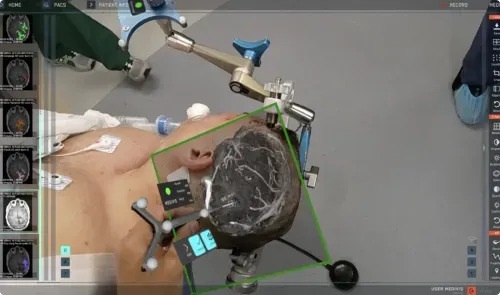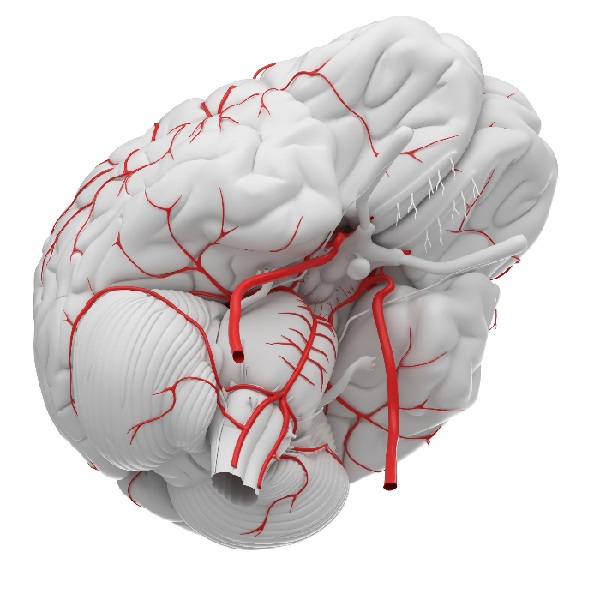Philips Launches Artificial Intelligence Platform for Healthcare
|
By HospiMedica International staff writers Posted on 05 Apr 2018 |

Image: The HealthSuite Insights platform is designed to give data scientists, software developers, clinicians and healthcare providers access to advanced analytic capabilities to curate and analyze healthcare data, and offers them tools and technologies to build, maintain, deploy and scale AI-based solutions (Photo courtesy of Philips Healthcare).
Royal Philips (Amsterdam, the Netherlands) has launched HealthSuite Insights, including the Insights Marketplace, to support the advancing adoption of analytics and artificial intelligence (AI) in key healthcare domains. HealthSuite Insights, which made its debut at the 2018 HIMSS Conference & Exhibition (HIMSS18), gives data scientists, software developers, clinicians and healthcare providers access to advanced analytic capabilities to curate and analyze healthcare data, and offers them tools and technologies to build, maintain, deploy and scale AI-based solutions. Insights Marketplace will provide the healthcare industry's first ecosystem where curated AI assets from Philips and others are readily available for license.
The tools and technologies available through HealthSuite Insights already enable machine learning and deep learning applications in Philips' diagnostic imaging solutions, patient monitoring solutions, and oncology and genomics offerings. The platform allows Philips to leverage AI across these innovations by combining it with other technologies and gain a deep understanding of the clinical, operational and personal context for care professionals and patients/consumers.
The Insights Marketplace will initially offer assets supplied by Philips, while medically validated Philips assets will be added later this year. It will be further expanded in late 2018 to include assets submitted by third parties. AI assets built using the Insights Platform are designed to be secure irrespective of the execution environment, with sophisticated Identity and Access Management, integrated Blockchain services, and data collection and management services built in. The Insights platform can be deployed on a healthcare cloud infrastructure such as the Philips HealthSuite Digital Platform, or on premise at a provider site.
"The quality of your AI is only as good as the quality of the data you feed into it," said Jeroen Tas, Chief Innovation & Strategy Officer Philips. "We have designed HealthSuite Insights to be used by the people who work with patient data on a daily basis and have the contextual understanding; including doctors, clinicians and hospital managers. With the HealthSuite Insights platform, we give them the ability to bring all the relevant patient information together, curate the data and use the power of AI to support precision diagnosis, personalized therapy, early intervention and greater hospital efficiency."
The tools and technologies available through HealthSuite Insights already enable machine learning and deep learning applications in Philips' diagnostic imaging solutions, patient monitoring solutions, and oncology and genomics offerings. The platform allows Philips to leverage AI across these innovations by combining it with other technologies and gain a deep understanding of the clinical, operational and personal context for care professionals and patients/consumers.
The Insights Marketplace will initially offer assets supplied by Philips, while medically validated Philips assets will be added later this year. It will be further expanded in late 2018 to include assets submitted by third parties. AI assets built using the Insights Platform are designed to be secure irrespective of the execution environment, with sophisticated Identity and Access Management, integrated Blockchain services, and data collection and management services built in. The Insights platform can be deployed on a healthcare cloud infrastructure such as the Philips HealthSuite Digital Platform, or on premise at a provider site.
"The quality of your AI is only as good as the quality of the data you feed into it," said Jeroen Tas, Chief Innovation & Strategy Officer Philips. "We have designed HealthSuite Insights to be used by the people who work with patient data on a daily basis and have the contextual understanding; including doctors, clinicians and hospital managers. With the HealthSuite Insights platform, we give them the ability to bring all the relevant patient information together, curate the data and use the power of AI to support precision diagnosis, personalized therapy, early intervention and greater hospital efficiency."
Latest Health IT News
- Machine Learning Model Improves Mortality Risk Prediction for Cardiac Surgery Patients
- Strategic Collaboration to Develop and Integrate Generative AI into Healthcare
- AI-Enabled Operating Rooms Solution Helps Hospitals Maximize Utilization and Unlock Capacity
- AI Predicts Pancreatic Cancer Three Years before Diagnosis from Patients’ Medical Records
- First Fully Autonomous Generative AI Personalized Medical Authorizations System Reduces Care Delay
- Electronic Health Records May Be Key to Improving Patient Care, Study Finds
- AI Trained for Specific Vocal Biomarkers Could Accurately Predict Coronary Artery Disease
- First-Ever AI Test for Early Diagnosis of Alzheimer’s to Be Expanded to Diagnosis of Parkinson’s Disease
- New Self-Learning AI-Based Algorithm Reads Electrocardiograms to Spot Unseen Signs of Heart Failure
- Autonomous Robot Performs COVID-19 Nasal Swab Tests

- Statistical Tool Predicts COVID-19 Peaks Worldwide
- Wireless-Controlled Soft Neural Implant Stimulates Brain Cells
- Tiny Polymer Stent Could Treat Pediatric Urethral Strictures
- Human Torso Simulator Helps Design Brace Innovations
- 3D Bioprinting Rebuilds the Human Heart
Channels
Artificial Intelligence
view channel
AI-Powered Algorithm to Revolutionize Detection of Atrial Fibrillation
Atrial fibrillation (AFib), a condition characterized by an irregular and often rapid heart rate, is linked to increased risks of stroke and heart failure. This is because the irregular heartbeat in AFib... Read more
AI Diagnostic Tool Accurately Detects Valvular Disorders Often Missed by Doctors
Doctors generally use stethoscopes to listen for the characteristic lub-dub sounds made by heart valves opening and closing. They also listen for less prominent sounds that indicate problems with these valves.... Read moreCritical Care
view channel.jpeg)
Transcatheter Valve Replacement Outcomes Similar To Surgery, Finds Study
A new study has shown that a minimally invasive procedure for replacing the aortic valve in the heart—known as transcatheter aortic valve replacement (TAVR)—is on par with the more traditional surgical... Read more
Revascularization Improves Life Quality in Chronic Limb-Threatening Ischemia, Finds Study
Researchers have undertaken a detailed study to evaluate the effects of revascularization strategies on the health-related quality of life (HRQoL) of patients with chronic limb-threatening ischemia.... Read moreSurgical Techniques
view channel
AR Surgical Technology Translates Complex 2D Medical Imaging to Enhance Accuracy
Surgeons often have to switch their focus between a patient’s data displayed on a screen or clipboard and the patient themselves during procedures. But that is about to change. Surgeons can now utilize... Read more
Miniaturized Snake-Like Probe Images Cerebral Arteries From Within
Endovascular interventions are being increasingly favored for treating strokes and cerebral artery diseases, but rely heavily on angiographical imaging that often struggles with limited contrast and spatial... Read morePatient Care
view channelFirst-Of-Its-Kind Portable Germicidal Light Technology Disinfects High-Touch Clinical Surfaces in Seconds
Reducing healthcare-acquired infections (HAIs) remains a pressing issue within global healthcare systems. In the United States alone, 1.7 million patients contract HAIs annually, leading to approximately... Read more
Surgical Capacity Optimization Solution Helps Hospitals Boost OR Utilization
An innovative solution has the capability to transform surgical capacity utilization by targeting the root cause of surgical block time inefficiencies. Fujitsu Limited’s (Tokyo, Japan) Surgical Capacity... Read more
Game-Changing Innovation in Surgical Instrument Sterilization Significantly Improves OR Throughput
A groundbreaking innovation enables hospitals to significantly improve instrument processing time and throughput in operating rooms (ORs) and sterile processing departments. Turbett Surgical, Inc.... Read moreHealth IT
view channel
Machine Learning Model Improves Mortality Risk Prediction for Cardiac Surgery Patients
Machine learning algorithms have been deployed to create predictive models in various medical fields, with some demonstrating improved outcomes compared to their standard-of-care counterparts.... Read more
Strategic Collaboration to Develop and Integrate Generative AI into Healthcare
Top industry experts have underscored the immediate requirement for healthcare systems and hospitals to respond to severe cost and margin pressures. Close to half of U.S. hospitals ended 2022 in the red... Read more
AI-Enabled Operating Rooms Solution Helps Hospitals Maximize Utilization and Unlock Capacity
For healthcare organizations, optimizing operating room (OR) utilization during prime time hours is a complex challenge. Surgeons and clinics face difficulties in finding available slots for booking cases,... Read more
AI Predicts Pancreatic Cancer Three Years before Diagnosis from Patients’ Medical Records
Screening for common cancers like breast, cervix, and prostate cancer relies on relatively simple and highly effective techniques, such as mammograms, Pap smears, and blood tests. These methods have revolutionized... Read morePoint of Care
view channel
Critical Bleeding Management System to Help Hospitals Further Standardize Viscoelastic Testing
Surgical procedures are often accompanied by significant blood loss and the subsequent high likelihood of the need for allogeneic blood transfusions. These transfusions, while critical, are linked to various... Read more
Point of Care HIV Test Enables Early Infection Diagnosis for Infants
Early diagnosis and initiation of treatment are crucial for the survival of infants infected with HIV (human immunodeficiency virus). Without treatment, approximately 50% of infants who acquire HIV during... Read more
Whole Blood Rapid Test Aids Assessment of Concussion at Patient's Bedside
In the United States annually, approximately five million individuals seek emergency department care for traumatic brain injuries (TBIs), yet over half of those suspecting a concussion may never get it checked.... Read more

















